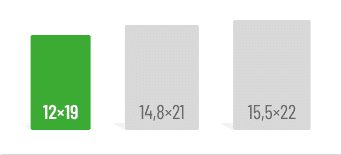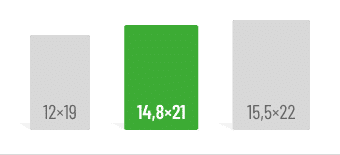First things first:
- Start your search in the right subject area.
- Use filters for targeted searches.
- Select the text category and publication year based on your needs.
With over 240,000 publications, GRIN is the largest platform for academic texts in Germany. Across more than 100 subject areas, you’ll find content on virtually any academic topic — your field included! GRIN is the perfect place to get an overview of your discipline and kick off your academic research. In this article, we’ll show you how to navigate our extensive collection and quickly find what you’re looking for.
The Best Overview: Our Subject Areas
From our homepage, you can access an overview of our subject areas in two ways. Either click on the “Search & Buy” button at the top to go directly to the catalog, or use the “Shop” option in the navigation menu. Here, you’ll see our most popular subject areas right away, but you can also explore the full list.

Our subject areas provide a great overview of what GRIN has to offer. They are structured around academic disciplines commonly found at universities. To get started, you can search for your own field of study and explore the available texts. The subject areas are listed alphabetically, and each one shows the number of publications it contains. Most subject areas are further divided into smaller topics. For example, under Business Studies, you’ll find subfields like “Controlling,” “Market Research,” or “Corporate Communication.”
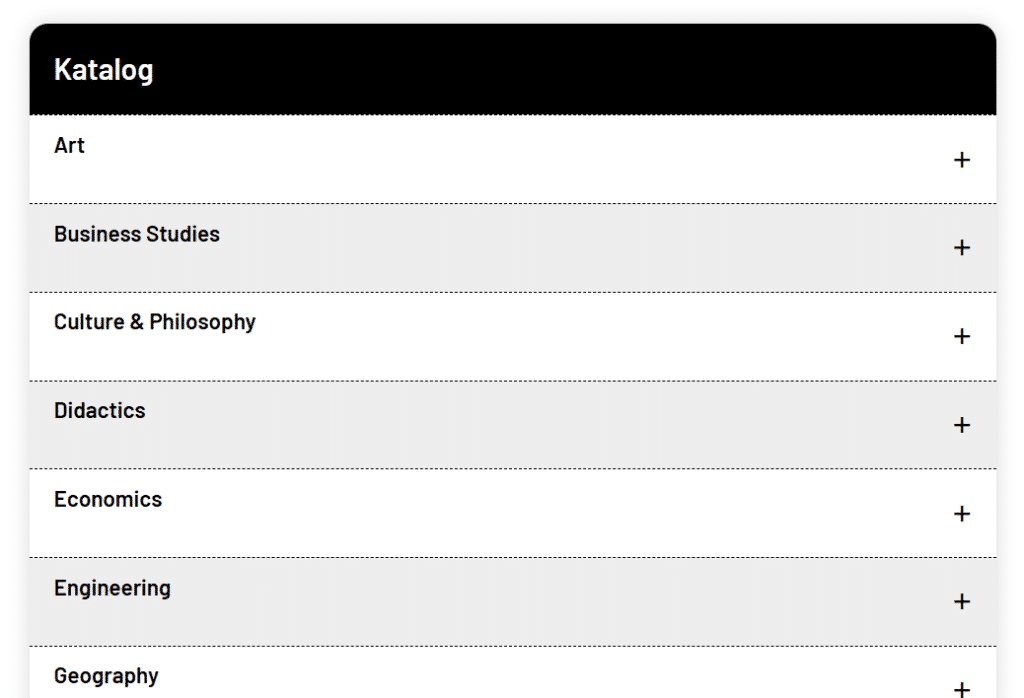
Exploring the overview of our subject areas is particularly helpful if you want to gain a broad understanding of your field of study. However, for specific questions, using the search function is more effective, as relevant publications might also be found in related subject areas.
For Those in a Hurry: Title-Based Search
The advantage of using the search function is that it draws on our entire database. This allows you to find all titles related to your topic. Simply use the search bar at the top of the page. As you start typing, you’ll see some suggestions right away. Once on the search results page, you can narrow the results to titles only. This is the fastest way to find publications that focus directly on your topic.
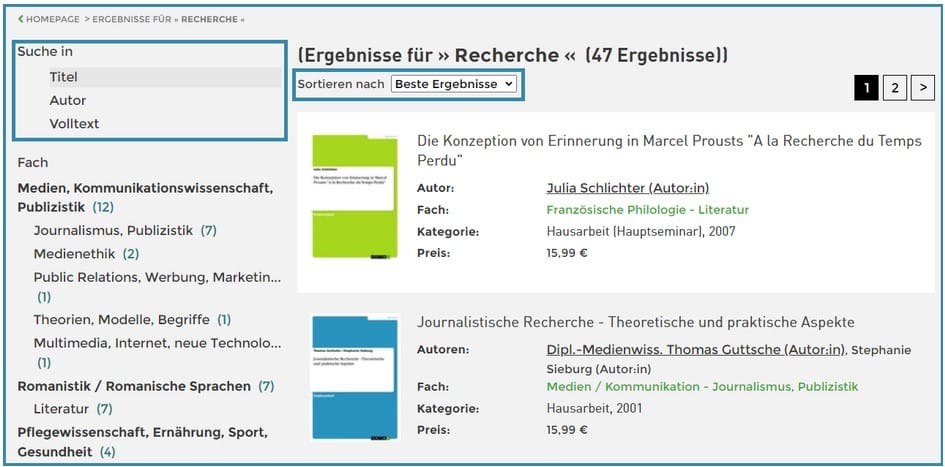
In the search results, you’ll find additional details about each title, including the subject, category, publication year, and price. You can sort the results by publication year or price if these factors are important to you. By default, GRIN sorts results by relevance. However, if you’re researching a topic with recent developments, sorting by publication year might be more useful. Have you come across several titles from the same subject area and want to explore all publications in that field? It’s simple — just click on the subject in the search results to view the complete collection.
Have you come across several titles from the same subject area during your search and want to explore all publications in that field? It’s easy — just click on the subject in the search results to view the entire collection.
Quick and Precise: Searching with Filters
Especially if you are researching a specific topic, it makes sense to look for combinations of keywords. To do this, you can write both terms one after the other in the search or combine them with a plus. A search for the work “À la recherche du temps perdu” by Marcel Proust can look like this:
- Research Proust
- Research+Proust
You can then refine the search results even further by using our various filters . Here you can choose between subject, category, price, language and year of publication. Especially in the case of ambiguous terms or multifaceted topics, it is helpful to narrow down the subject area. For example, if you want to deal with the use of language in commercials from a linguistic point of view, then you are less interested in business studies on effective marketing. You can easily narrow down the results for the keyword “advertising” to the “linguistics” area:
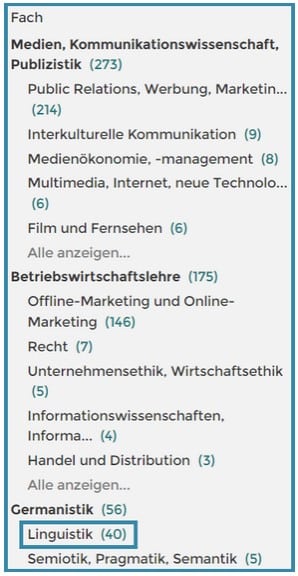
The “Category” filter refers to the type of text – i.e. seminar paper, bachelor’s thesis, essay, etc. If you are still at the beginning of your studies, it can make sense not to fall back on a complicated doctoral thesis right away. Conversely, you may want to use other theses for your research for your master’s thesis.
Our shop usually only shows you results that have appeared in your language. If you also speak other languages, you can enter your search terms in those languages and find even more relevant publications. You also have the option to filter your results by language. For example, you will often find more relevant articles on foreign-language literary texts in the original language than in German. Here it is worth narrowing it down to a specific language.

The year of publication is a helpful filter, especially if you are working on a current topic. In addition, there are courses of study in which particular emphasis is placed on the fact that scientific papers primarily reflect the latest developments in a subject area. To meet this requirement, you can filter GRIN by a specific year of release.
Which entry point you choose in our shop and which filter options will help you depends heavily on the purpose for which you use GRIN. As with any research, it makes sense to think about this briefly before you get started. In our article ” 5 Methods for Scientific Research“, we will introduce you to other methods and also explain how to find the right keywords for a search.
You might also be interested in these articles:
Do you like our magazine? Then sign up for our GRIN newsletter now!







